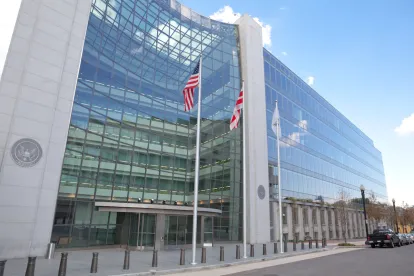On July 21, 2021, the SEC’s Division of Examinations issued a Risk Alert identifying the most frequently cited deficiencies in adviser compliance programs from the staff’s Wrap Fee Initiative. The Division’s Wrap Fee Initiative involved over 100 examinations of advisers, including firms that serve as portfolio managers in, or sponsors of, wrap fee programs and firms that advise their clients’ accounts through one or more unaffiliated third-party wrap fee programs. Noting that “many examined advisers’ compliance programs could be improved,” the most frequently cited deficiencies related to: (1) compliance and oversight, including policies and procedures for monitoring wrap fee programs; and (2) disclosures, including disclosures regarding conflicts, fees and expenses.
The deficiencies observed by the SEC staff included the following:
-
Failure to monitor trading in clients’ accounts or ineffective monitoring. The SEC staff noted advisers that failed to monitor for “trading-away” from the broker-dealers providing bundled brokerage services to the wrap fee programs and the associated costs of such trading-away practices. Consequently, clients may have incurred transaction costs in addition to paying the bundled wrap fees.The staff also identified infrequent trading in wrap fee accounts at several examined advisers, suggesting that certain clients with low trading activity were paying higher total fees and costs than they would incur in non-wrap fee accounts.
-
Failure to assess whether wrap fee programs were in the clients’ best interests. The SEC staff noted advisers that routinely recommended participation in wrap fee programs without conducting assessments—initially, ongoing or both—as to whether the programs were in the clients’ best interests. Other advisers conducted inadequate ongoing reviews, such as assessments limited to a small sampling of accounts or that systematically excluded certain transferred and/or legacy accounts.
-
Inconsistent or misleading disclosures regarding the same topic in various documents. For instance, the SEC staff noted advisory agreements that indicated clients would pay brokerage commissions, even though wrap fee program brochures expressly stated that clients would not pay such fees. Other advisers disclosed householding discounts and other rebates that were not applied, resulting in clients being overbilled.
-
Omitted disclosures or inadequately described conflicts of interest. For example, the SEC staff noted advisers that did not disclose that client accounts with low trading volumes, high cash balances or significant fixed income weightings may be able to receive similar services at a lower cost outside of a wrap fee program.
-
Weak, ineffective or nonexistent compliance policies and procedures relating to wrap fee programs. For example, the SEC staff noted advisers that failed to fully implement or enforce their compliance policies and procedures, such as by failing to: (1) conduct due diligence on third-party portfolio managers they recommended to clients, despite statements made otherwise; (2) review client accounts and fee billing as outlined in the policies; (3) implement policies, as stated, related to best interest reviews, advertising, code of ethics; and (4) ensure that disclosure documents were current.
In addition to the foregoing deficiencies, the Risk Alert includes the staff’s observations as to certain industry practices that may help firms address some of the areas of noncompliance.
The Risk Alert includes the following recommendations to advisers regarding wrap fee programs:
-
Conduct reviews of wrap fee programs—both initially and periodically thereafter—to assess whether the programs are in the best interests of clients, with information obtained directly from clients, such as through interviews, discussions and/or questionnaires.
-
Periodically remind clients, after conducting initial best interest reviews associated with the recommendation to participate in wrap fee programs, to report any changes to their personal situations, or financial standing or needs, and investment objectives that might impact the clients’ risk tolerances, investment allocations and/or recommended investments.
-
Communicate with clients to prepare and educate them when recommending that accounts convert from non-wrap fee accounts to wrap fee programs.
-
Provide clients with disclosures about conflicts of interest related to transactions executed within the wrap fee programs.
-
Provide clear disclosures, when recommending wrap fee programs to clients, about whether certain services or expenses are or are not included in the wrap fee.
-
Include within compliance policies and procedures factors to be used when assessing whether investment recommendations made to clients participating in wrap fee programs, including asset allocations and selection of managers, are in the clients’ best interests.
-
Monitor and validate that best execution is being sought for wrap fee clients.
-
Identify what the adviser considers to be “infrequently” traded accounts and ensure that such accounts are reviewed to ensure that a wrap fee program remains in the client’s best interests.
-
The Risk Alert is available here.







 />i
/>i
